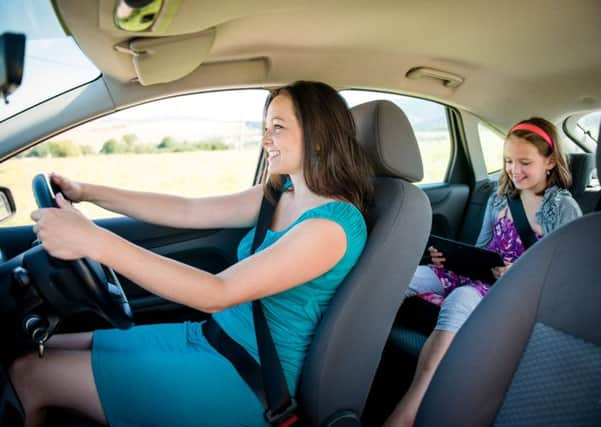Leader comment: Our '˜windscreen perspective' will take time to change


Travel around new towns built in the mid-20th century and you will quickly discover that many were not designed with pedestrians in mind, as you navigate the concrete bridges and dank underpasses that take a circuitous route around the wide and spacious roads.
Only lately have we started to once again recognise the benefits of public transport and of human-powered movement.
Advertisement
Hide AdAdvertisement
Hide AdBut still obstacles – physical and social – remain. Many turn up their noses at the idea of catching a bus, although apps that tell of the next one’s arrival have reduced much of the old uncertainty about how long you will have to wait.
Fear of being hit by a car or a lorry dissuades many from travelling to work by bicycle. Cycle lanes and dedicated paths are being introduced, but the progress could be quicker.
Now academics from Edinburgh University are warning that the Scottish Government and the other administrations in the UK are still looking at the world from a “windscreen perspective”.
Breaking free from this mindset would cut the carbon emissions driving climate change, boost economic growth and help us lead a healthier lifestyle, they say.
And it is undoubtedly true that walking or cycling to work or to school would help stave off the modern scourge of obesity, although improving the Scottish diet may have a greater role to play on that issue.
Cutting the number of cars on the roads would also help tackle largely invisible air pollution, described by the World Health Organisation as the “single largest environmental risk to health” and linked to six million premature deaths across the globe.
However, one statistic flagged up by Edinburgh University team is indicative of the scale of the task ahead; they found that the average journey to school has doubled over the past 30 years to nearly four miles.
It is hardly surprising – given how much of our world has been designed with the car in mind – that we have, accordingly, changed the way we live. So persuading or enabling people to cycle to the places they need to go to every day is not just as simple as creating new infrastructure. And that means our car-dominated world may be here for longer than some would like.